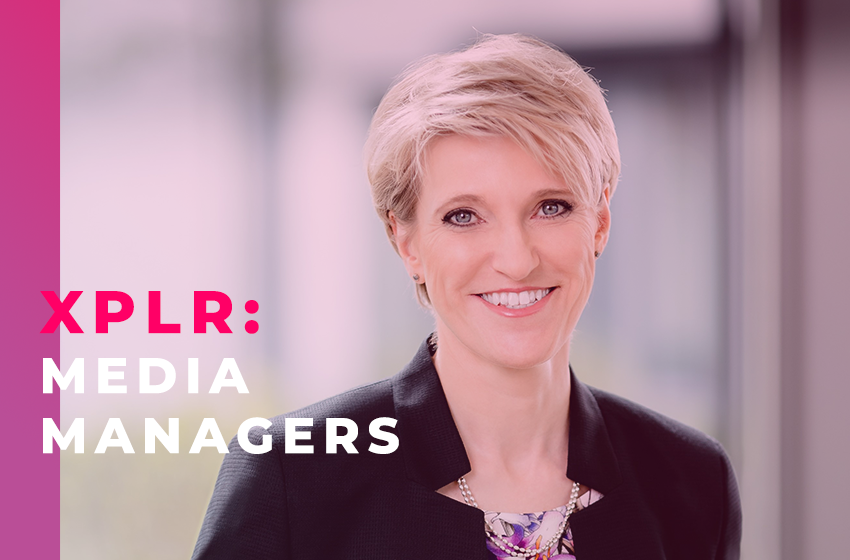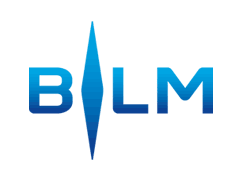
Susanne Aigner-Drews – “Optimism and the motivation to get down to business”
Since its launch in 1996, Discovery Germany has developed from a subscription TV channel to a multi-platform provider. Managing Director Susanne Aigner-Drews reveals how to navigate a network channel through the Corona crisis and what management has in common with Shakespeare.
Can you describe your portfolio for the readers that don’t know Discovery Germany?
Aigner-Drews: Discovery Germany is a wholly owned subsidiary of the American Discovery Inc. With our real-life entertainment programs, reports, and documentaries about real people and real stories, we reach three billion viewers worldwide. We used to be a subscription TV channel, but in recent years we have experienced strong growth, especially in terms of broadcast TV. In Germany we have a diverse portfolio for a wide range of target groups.
In the free-to-air sector, we are represented by our men’s channel DMAX, our women’s channel TLC, as well as the sports channel Eurosport 1. In June 2019 we launched our latest channel Home [&] Garden TV for people that like to furnish, renovate, and design. We also host subscription TV channels such as Discovery Channel, Animal Planet, and Eurosport 2. In 2019, we successfully launched the streaming platform Joyn, our joint venture with the broadcasting company ProSiebenSat.1. In addition, we have just announced that we will take over the channel TELE 5. That will be our first step into fiction TV.
Can we have a successful interview without talking about Corona?
Aigner-Drews: I think it might be difficult not to talk about it. Who would have thought six months ago that our personal and professional lives would change so dramatically. As a channel and platform host we were as concerned by the pandemic as other segments of the industry. We had to work with lower ad revenue, but Discovery Germany is a 360-degree media service provider and a quite diversified company which does not entirely depend on advertisement.
Our way of working has gone through an enormous change in the last several months. Today is the first day that I am back in the office. Many colleagues are still working from home, which leads to a totally different way of collaboration and communication. Everything works very well, but I increasingly miss the opportunity to network and to exchange with colleagues personally.
We have tried many new things in these unusual times. We were very creative and added new formats to our channels. We have learned a lot; for example, we know now that we can rely on our positioning. With our programs on various channels, we have built up an entertainment and information offering that our viewers know and love and appreciate even in times of crisis.
Speaking of learning – you once said in an interview that you would like to learn a musical instrument, the Styrian accordion. How is it going?
Aigner-Drews: (laughs) That is still on my wish list. At least I unpacked it. Every now and then I sit down and try to play, but unfortunately, I am not really good at it yet. It is hard to teach myself to play this instrument and I really need proper lessons. I love the sound of this instrument. It sounds quite gentle and very unique – for me it is a dream that I will never give up.
Market changes and digitization put TV channels under a lot of pressure. What is your strategy? Where do you go with Discovery Germany?
Aigner-Drews: We are undergoing the biggest transformation of our industry – even without Corona. Due to technological progress, audiovisual use has changed a lot in the last ten to 15 years. There are no rigid broadcasting times anymore. The viewer wants to access content immediately, whenever and wherever he wants to. Today he can even take part in content creation.
Of course, we adapt to these changes and the needs of the audience. We have partly moved away from fixed broadcasting times. With ProSiebenSat.1, for example, we founded the Joyn platform where we can offer not only our own content, but also that of many of our production partners, anywhere and anytime.
There are still many people who want to kick back in the evening and do not want to be their own program director. For them, linear TV stations continue to deliver the perfect programs. For the younger, mobile target group that wants to watch certain programs on the go, regardless of time and place, we are creating new ways of consuming content.
Joyn just celebrated its first anniversary, right?
Aigner-Drews: Right. The platform has been very successful in its first year. At the moment we have a wide TV broadcast offering on Joyn with live streams of more than 60 local channels. In addition, there are many on-demand programs from various partners and we also offer Joyn Originals, which are produced especially for the platform. We now have 7.2 million active monthly users on the platform and the app has been downloaded over 11.4 million times. New features and new content are constantly being added.
You studied English in Munich. What can you learn from Shakespeare as a TV station manager?
Aigner-Drews: English literature was my minor, communication science was my major. But I still remember some quotes from Shakespeare’s tragedies and comedies. I think this one is interesting – “How poor are they that have not patience!”. I think we can take that to heart quite often during the Corona crisis (laughs).
Humanities do not necessarily qualify one for a specific profession, but they prepare students for many career paths and help them to train their logical thinking, analytical skills, and structured work.
In the beginning, I wanted to become a journalist, preferably a sports journalist. After my studies I applied as a volunteer at a channel that wanted to build up an editorial sports department. Unfortunately, that did not work out. On my way home, I happened to pass by the German sports channel DSF and by chance I ran into a friend who I told about my disappointment. He replied: “Apply for my job, because I just quit.” And that is how my media career in ad space marketing began.
Do you have a role model in the media industry or as a manager? What inspires you?
Aigner-Drews: My greatest role model is my mother. She passed her natural and great optimism on to me. Her motto in life is “There is rarely harm without benefit”.
How would you describe your management style?
Aigner-Drews: Optimism and the motivation to get down to business. I am very team oriented. I enjoy discussing and deciding things together with my employees – even if in the end I am responsible for the decision. For me it is important to involve my team from the very beginning when we begin a new project. This also gives me more support and acceptance when it comes to decision making. I take my team and the team spirit very seriously. That is why it was particularly difficult for me not to personally meet with my colleagues during the lockdown.
You are often asked what it is like as a woman to run a TV channel that is aimed at men. What do you think about that?
Aigner-Drews: In our society and in the business world, it must become a matter of course that the person with the best skills takes on tasks, challenges, and positions. This should not be based on one’s gender or origin. I do not ask myself the question of whether I can run a male TV channel, because my team feels confident with it and so do I.
We have so many different channels and DMAX is only one of them. By the way, this channel is one of my favorites because I have managed it from since its launch in 2006. I find the topics incredibly interesting; it is not important if it is a men’s or women’s channel.
XPLR: More Media Managers
Macht das nicht Sinn? Gerade die kleinen und mittelständischen Unternehmen müssen doch angesichts der Corona-Krise gut überlegen, wofür sie Geld ausgeben.
Jens: Das stimmt. Nur bietet die derzeitige Situation gerade für Unternehmen Chancen, die ansonsten vergleichsweise wenig Geld für Social Media Marketing zur Verfügung haben. Ich denke da an das Café an der Ecke oder den Buchladen in der Kleinstadt – an all diejenigen also, die besonders unter der Ausgangssperre leiden.
Das liegt daran, dass sich gerade viele Unternehmen mit digitaler Werbung auf Kanälen wie Facebook oder Instagram zurückhalten, obwohl sie ihr Budget nicht zwangsläufig gekürzt haben. Gleichzeitig verbringen die Leute aufgrund der eingeschränkten Freizeitaktivitäten mehr Zeit in den sozialen Netzwerken. Diese Faktoren führen dazu, dass der Wettbewerb um Impressions, Link-Klicks und Interaktionen abnimmt.
Heißt: Wer jetzt investiert, zahlt weniger für Klicks und Conversions als sonst?
Jens: Genau. Dazu kommt, dass man mit geringen Budgets ein wenig experimentieren kann. Schon mit 15 oder 20 Euro am Tag können sich diejenigen ausprobieren, die sonst die Finger von Facebook Ads lassen: So kann das Café an der Ecke schon mit wenig finanziellen Aufwänden die Anwohner*innen in der Nachbarschaft darüber informieren, dass es einen Lieferservice eingerichtet hat und der Kuchen jetzt an die Haustür gebracht wird.
Im Übrigen bietet Facebook gerade viele Infos für Geschäfte, Läden und Unternehmen an, um bisher analog ablaufende Prozesse zu digitalisieren.
Hast du den Eindruck, Corona bringt gerade auch die letzten Digitalisierungsskeptiker ins Web?
Jens: Es gibt auf jeden Fall einen Schub. Die Digitalisierung wird vorangetrieben. Besonders erfreulich ist dabei die Fantasie, mit der auch Unternehmen, die bisher nicht sonderlich Social Media-affin waren, mit ihrer Community in Kontakt treten.
Zum Beispiel hat ein LKW-Hersteller kürzlich Ausmalbilder für Kinder auf seiner Facebook-Seite gepostet. Das ist kreativer Content, der jede Menge zur Markenbindung beiträgt. Die derzeitige Situation zwingt die Unternehmen zum Umdenken. Plötzlich geht all das, was vorher vielleicht aus strategischen Gründen nicht ging. Die Menschen trauen sich jetzt etwas im Netz. Die Ergebnisse sind großartig.
Auch Allfacebook musste aufgrund von Corona kreativ werden. Die Allfacebook Marketing Conference fand im März statt in München virtuell statt. Die „Vor Ort“-Konferenzausgabe ist in den August gewandert. Wie waren eure Erfahrungen mit der digitalen Konferenz?
Jens: Zehn Tage vor der Konferenz haben wir entschieden, das Event virtuell stattfinden zu lassen. Dieses Angebot wurde sehr gut angenommen. An der virtuellen Konferenz haben knapp 450 Leute teilgenommen, also rund die Hälfte der Personen, die wir vor Ort erwartet hätten. Mit einer so hohen Beteiligung haben wir nicht gerechnet. Wir dachten, dass die Leute derzeit nicht den Kopf für so etwas haben. Aber das Gegenteil war der Fall. Zusätzlich findet vom 24. bis zum 26. August erstmals eine Sommer-Ausgabe der Konferenz statt.
Ist die virtuelle Ausgabe eine Option für die Zukunft?
Jens: Ich persönlich bin ein Freund von physischen Events. Der persönliche Austausch ist doch nochmal etwas anderes, auch wenn es inzwischen tolle digitale Networking Tools gibt. Die virtuelle Konferenz war eine gute Erfahrung und das Feedback war durchweg positiv. Aber dennoch: Ich freue ich mich auf die Allfacebook Marketing Conference im Sommer.
Screenshots aus dem VR-Adventure „Blautopf VR“ (Foto: Philipp Schall, TELLUX Next GmbH)



